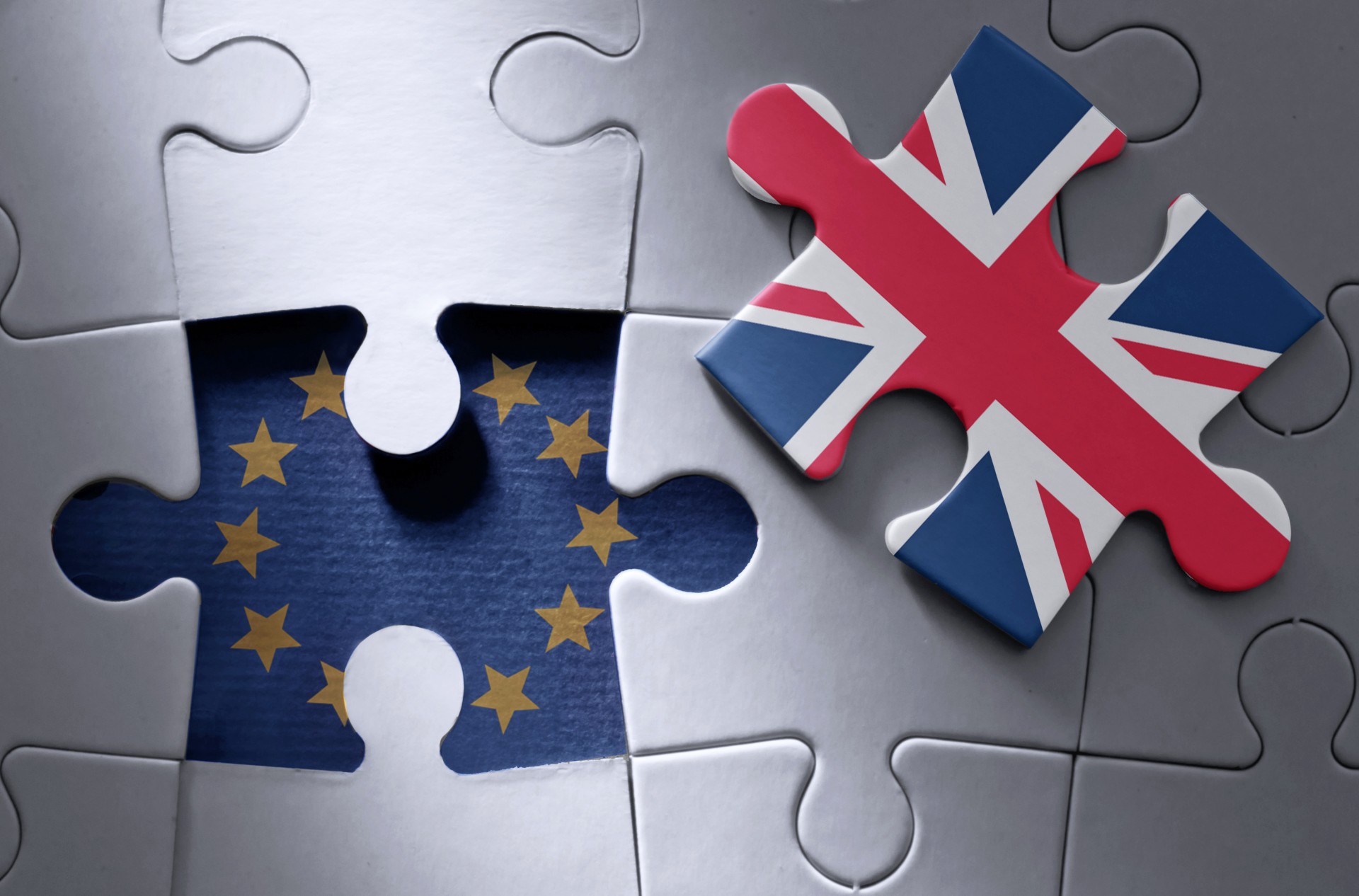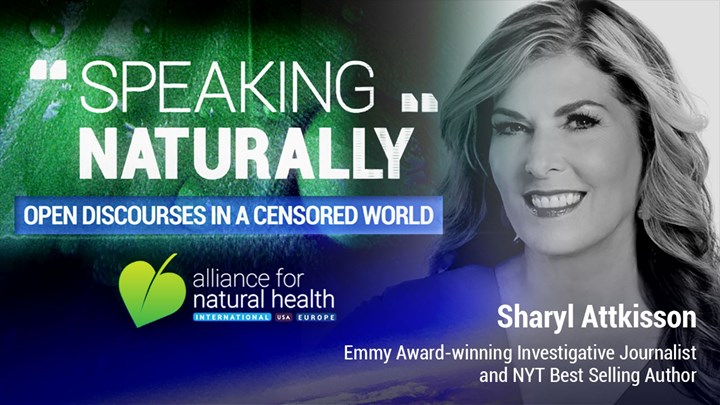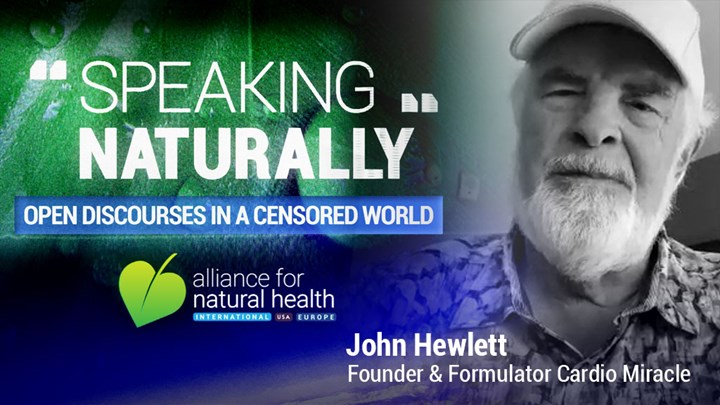It’s time to focus on what bits of EU law are really problematic for those of us who choose to manage our health by natural means.
Back in July, we had a close look at 12 laws that we called the Distorted Dozen that pose real problems for natural health. As the UK begins to prepare itself for Brexit, it’s the perfect time to consider some of the worst excesses of EU law that have impacted the British people – as well as millions outside of Britain.
Brexit however provides a potential let out – at least for Brits. That’s only if the laws that shore up these absurd and unnecessary impositions on our fundamental rights and freedoms are repealed.
Here are 10 absurdities we’ll be pushing hard to resolve by making sure the laws that shore them up are repealed with or soon after Brexit has been initiated:

Well, that’s what some EU citizens might believe given that the European Commission has disallowed EU-wide use of the health claim “water is actively involved in body functioning” because the European Food Safety Authority (EFSA) says there is insufficient information to prove the relationship between drinking water and any type of body function. Shall we take from this that the EU authorities think water's not important for health - or survival even?

The UK's media industry self-regulator, the Advertising Standards Authority, which behaves like a government regulator, using the EU Nutrition and Health Claims Regulation as its legal basis, has banned ‘naturally fast food’ chain Leon Restaurants referring to one of its top selling salads as “Original Superfood Salad”. The ASA argued this was because 'superfood' in the name wasn't “accompanied by a specific authorised health claim”. Never mind that there are no relevant authorised health claims, meaning the term superfood is now banned on any food product because of this UK interpretation by a media industry self-regulator.

129 health claim applications for probiotics and 30 for prebiotics have been considered and rejected by the European Food Safety Authority (EFSA) – effectively banning their use. This is a small proportion of the current 2,050 health claims that are "non-authorised" (i.e. banned EU-wide) out of the 2,309 assessed by the European Food Safety Authority and on the EC Register on nutrition and health claims on foods.
Unless you want to go to jail of course. Glucosamine and chondroitin are by far the top selling supplements for joint health yet they can no longer be sold with any mention of their effects despite a great body of evidence suggesting they’re effective. That’s because the studies were done on ‘diseased’ populations – i.e. people with dicky knees and hips. According to the European Food Safety Authority (EFSA), the studies should have been done on people whose knees and hips were just fine. Work that one out.
In determining whether berries (namely lingonberry, cloudberry, blueberry, currants, raspberry and strawberry) do or don’t contain natural antioxidants, the European Food Safety Authority (EFSA) decided there wasn’t enough evidence to prove they did. So the Commission has banned any antioxidant claim for berry fruits despite every scientist knowing full well berry fruits are loaded with polyphenols, flavonoids and other antioxidants.
Not a single one of the nine essential amino acids which can only be obtained through the diet has been granted an authorised health claim even though these amino acids are essential, not only for health, but also for life itself! Don’t be surprised, then, that all the dozens of other semi- and non-essential amino acids have suffered a similar fate. There are 15 "non-authorised" (i.e. banned) health claims for branched-chain amino acids and 43 "non-authorised" (yes, banned) health claims for amino acids altogether. We repeat: not one amino acid health claim is authorised. That’s like saying we don’t need amino acids, OK?
If retailers or manufacturers can’t prove their foods or ingredients were “not used for human consumption to a significant degree within the Union before 15 May 1997” (a vague, unspecified concept in itself), they are banned from sale as ‘unauthorised novel foods’. Among the many plants caught by this absurd and EU protectionist law are: Acacia rigida (blackbush acacia), Coriolus versicolor (turkey tail), Epimedium grandiflorum (horny goat weed), Hoodia gordonii, Irvingia gabonensis (African mango), Siraitia grosvenorii (Buddha’s fruit, luóhàn guǒ) and Salvia hispanica (Spanish chia).
The Human Medicinal Products Directive 2001/83/EC has such a broad scope, national regulators have a loaded gun to classify any product that restores, correct or modifies physiological functions as medicinal. Coffee, tea and even water does just that. Herbal teas, especially the best ones, are really good for us, making them especially vulnerable to challenge by regulators – and some (like Essiac) have already been axed in this way.

With no evidence that it poses any risk to health whatsoever, simply the fact that it works very well at helping our over-burdened livers deal with the toxic assaults of our bodies’ metabolism and of our modern world, milk thistle has been classified by the UK regulator as a drug. The excuse? You’ve guessed it: the broad scope of the definition of a medicine in EU law.

The EFSA has imposed a Tolerable Upper Level of selenium of 250 mcg/day for supplements. That’s a bit less than the amount you’ll find in 4 brazil nuts, that don’t need any warning to consumers about needing to limit the number consumed when sold as nuts. That’s because no one has ever been harmed from eating brazil nuts, selenium rich as they are. Germany, by taking into account dietary intakes, has reduced the maximum allowed level in supplements to just 30 mcg/day. That’s the amount in less than one half of a brazil nut. Watch out for a swathe of other dose restrictions if the EU gets its way with imposing maximum limits on vitamins and minerals, an issue we’ve been at the forefront of challenging for many years now.
Call to Action
- UK citizens and residents: find your MP
- Send your MP this list of 10 EU Natural Health Absurdities, and let him or her know all EU laws with provisions that negatively impact natural health should be repealed as soon as possible after Brexit.
- Let your MP know the Alliance for Natural Health (anhinternational.org) will be coming to talk to them soon about the specifics.
- Please inform us of MPs are who receptive, and equally those who’re not. Please email us at [email protected] subject line ‘EU Absurdities’. Thank you.













Comments
your voice counts
02 November 2016 at 7:21 pm
Thankfully, the EU will shortly be a thing of the past, and we can stop the blatant lies that are keeping the pharmaceutical industry in business !
03 November 2016 at 7:24 pm
It is absurd to restrict health enhancing supplements and yet allow the unrestricted sale of established health threats such as alcohol, refined sugar, saturated fats and over refined products such as white flour.
It would be better to legislate against air pollution, climate threatening gases etc. which will certainly harm vast numbers of people, than to limit dietary choice where there is no proven record of harm to consumers who have been taking supplements and herbal teas over a long time-span!
05 November 2016 at 7:48 pm
I'm not sure that Brexit is going to result in any changes in the short to medium term. The repeal of the European Communities Act 1972 is going to require a huge amount of effort in itself just to preserve the status quo. There are some that think that it will be a trivial exercise but the reality is that it would be a huge piece of legislation. It has the potential to create a legislative log jam that would prevent the passing of other legislation. Asking to fold in amendments would certainly delay the process even further and is an obvious tactic for those who oppose Brexit to use. Not knowing what form Brexit will take is also an issue. Access to the single market has caused Norway to abide by EU regulation without any input to them.
One of my concerns with TTIP is that it could lead poorer food standards. Hormone filled beef from the US for example. Worse still, a roll back of labelling of GMO foods - which is mandatory in the EU but not in the US. Accepting lower standards as part of trade deals yet to be done is not a good thing in my view. It's likely that the UK would have a weaker negotiating position outside the EU, especially with countries with larger economies and trade surpluses with the UK.
Your voice counts
We welcome your comments and are very interested in your point of view, but we ask that you keep them relevant to the article, that they be civil and without commercial links. All comments are moderated prior to being published. We reserve the right to edit or not publish comments that we consider abusive or offensive.
There is extra content here from a third party provider. You will be unable to see this content unless you agree to allow Content Cookies. Cookie Preferences